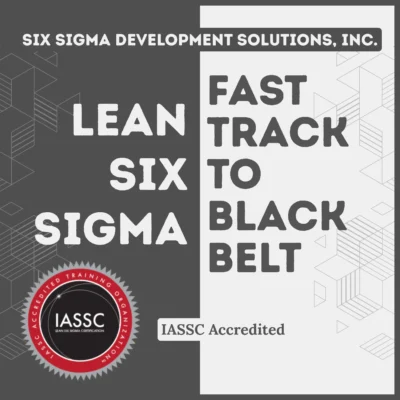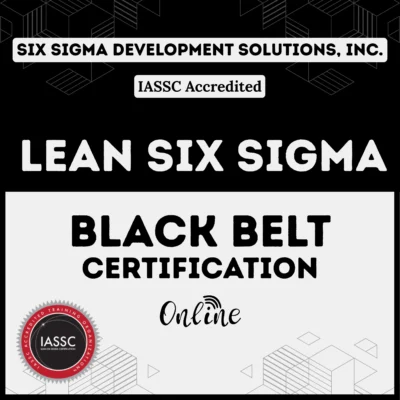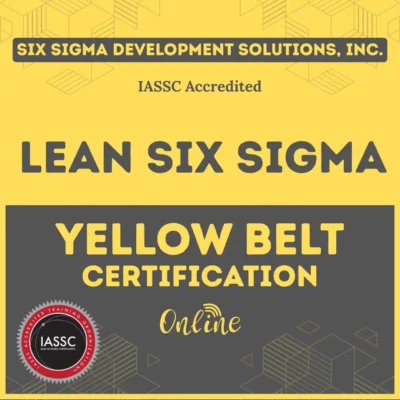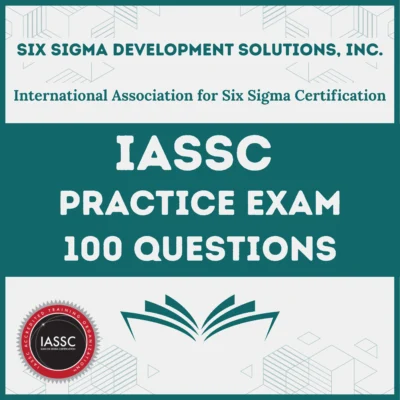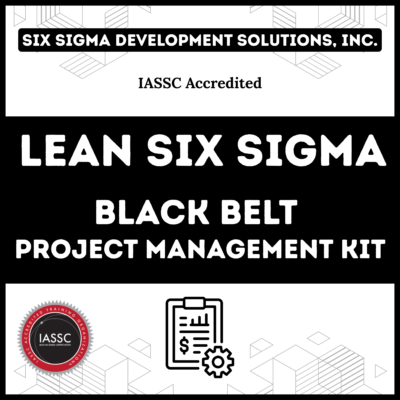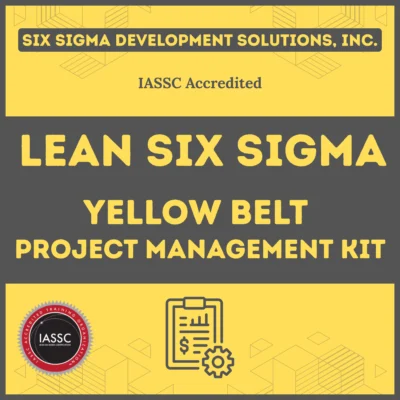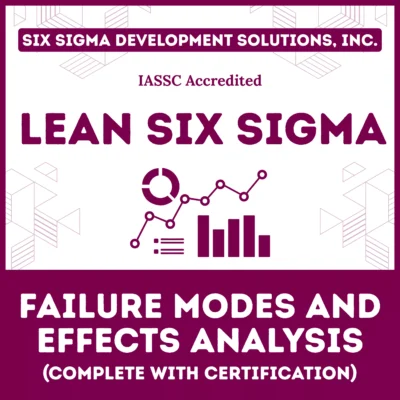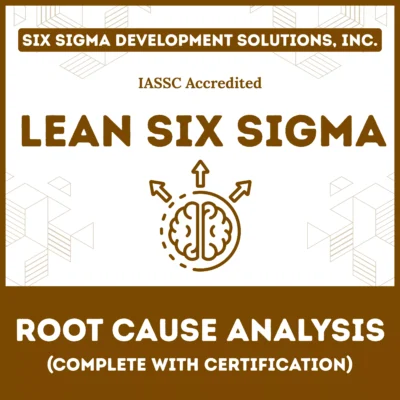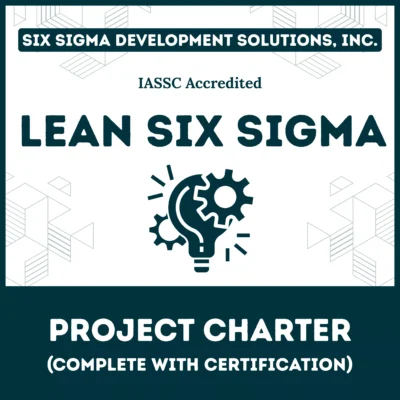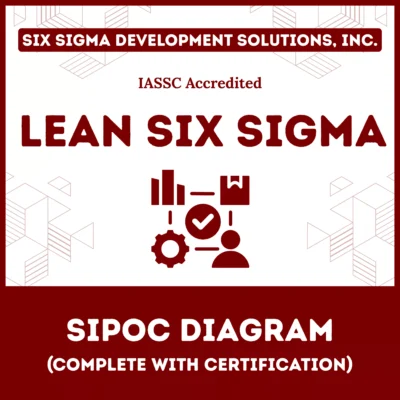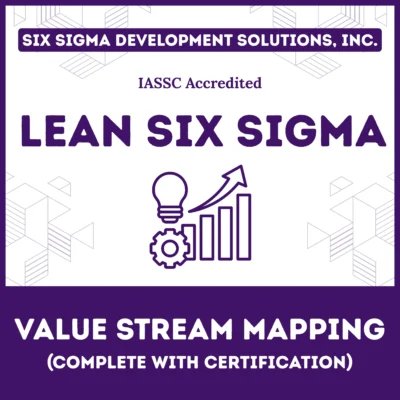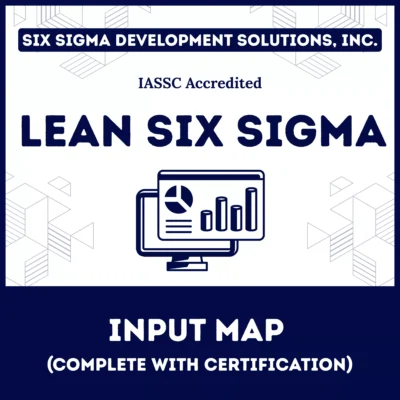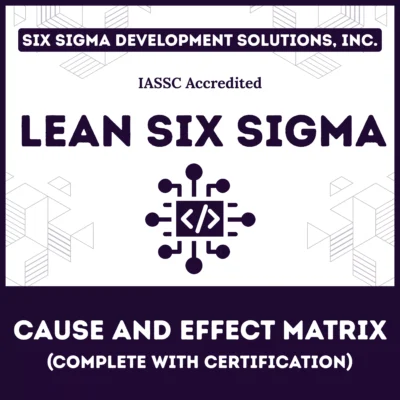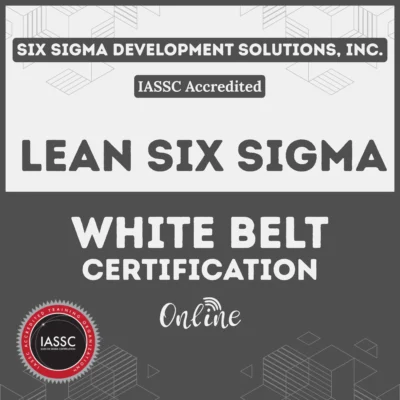The Best Lean Six Sigma training in Boston emphasizes practical application, moving beyond theoretical concepts to deliver measurable results. This approach is particularly relevant within Boston’s diverse and dynamic sectors, including its renowned healthcare, biotech, and financial services industries.
Our program provides hands-on experience with statistical analysis and process improvement methodologies, essential for optimizing operations and reducing waste. These skills are critical for navigating the complex environments found in Boston’s established institutions and burgeoning startups.
We track and maintain high certification rates, reflecting our commitment to student success and knowledge retention, alongside consistently positive participant feedback.
Leveraging Boston’s position as a hub for innovation and research, we incorporate case studies from leading local organizations, such as Massachusetts General Hospital, Biogen, and Fidelity Investments. This ensures that our training is directly applicable to the challenges and opportunities present in the region.
Whether you are beginning your Lean Six Sigma journey or seeking to advance your expertise, our Boston-based training equips you with the tools and confidence to contribute to organizational improvement. This training is designed to prepare you for a city at the forefront of medical advancement, financial technology, and higher education innovation.
Table of contents
- What is Six Sigma?
- Why Boston for Six Sigma Training?
- Which is the Best Six Sigma Training Provider in Boston?
- SSDSI’s programs Highly Sought After by Boston Professionals
- Client Testimonial
- Data-Driven SSDSI Facts and Statistics
- Difference Between SSDSI Six Sigma Training and Other Providers
- Companies Adopting Six Sigma in Boston
- Choosing the Right Lean Six Sigma Training Provider in Boston
- Choosing the Right Lean Six Sigma Program
- Evaluating Training Content
- Benefits of Six Sigma Certification
- Implementing Six Sigma in Your Career
- Final Words
- Related Articles
What is Six Sigma?
Six Sigma is a data-driven methodology aimed at improving business processes by minimizing defects and variability. It uses statistical analysis to identify and eliminate the root causes of errors, striving for near-perfect quality. Key to Six Sigma is the DMAIC (Define, Measure, Analyze, Improve, Control) framework, which guides process improvement.
The goal is to enhance efficiency, reduce costs, and increase customer satisfaction by achieving a high level of process precision.
Key Components of Lean Six Sigma Training
Training Levels (Yellow Belt, Green Belt, Black Belt, Master Black Belt): These represent the different stages of expertise Belt Levels:
- Six Sigma employs a hierarchical belt system (Yellow, Green, Black, Master Black) that signifies increasing expertise and responsibility.
- Progression involves mastering foundational principles, leading complex projects, and mentoring others.
DMAIC Methodology:
- The core problem-solving framework:
- Define: Clearly articulate the problem and project scope.
- Measure: Quantify current process performance using relevant metrics.
- Analyze: Employ statistical tools to identify root causes of variation and defects.
- Improve: Develop and implement data-driven solutions to optimize the process.
- Control: Establish monitoring systems to sustain improvements and prevent regression.
Statistical Analysis & Practical Application:
- Training emphasizes proficiency in statistical tools (e.g., hypothesis testing, regression analysis, control charts).
- Real-world case studies illustrate the application of these tools to solve business challenges.
Leadership and Mentorship Development:
Mentoring responsibilities foster a culture of continuous improvement and knowledge transfer.
Advanced belt levels (Black Belts, Master Black Belts) involve leadership of large-scale projects and organizational change.
Why Boston for Six Sigma Training?
Boston presents a uniquely advantageous environment for Six Sigma training, stemming from its potent blend of academic rigour and industrial diversity.
The city’s reputation as a hub for world-class education means that Six Sigma programs here often benefit from instructors with deep theoretical and practical expertise, frequently drawn from leading universities and research institutions. This translates to training that not only covers the core methodologies but also delves into advanced statistical analysis and cutting-edge process improvement techniques.
Furthermore, Boston’s economy is a dynamic mix of sectors, including healthcare, biotechnology, finance, and technology. This diversity creates a rich tapestry of real-world applications for Six Sigma principles.
Trainees gain exposure to case studies and projects that span a wide range of industries, equipping them with the adaptability to apply their skills in any professional setting. Imagine learning how Six Sigma can optimize patient flow in a world-renowned hospital, or streamline financial transactions in a major investment firm. This real-world applicable experience is invaluable.
Finally, Boston’s culture of innovation fosters a continuous improvement mindset, which aligns perfectly with the core tenets of Six Sigma. The city’s emphasis on research, development, and problem-solving creates an environment where Six Sigma practitioners can thrive.
By learning in Boston, you gain not just technical skills, but also a valuable network of professionals who are dedicated to driving efficiency and quality in their respective fields.
Which is the Best Six Sigma Training Provider in Boston?
Six Sigma Development Solutions, Inc. (SSDSI) stands out as one of the best Six Sigma training providers in Boston. With a reputation built on excellence, SSDSI is an accredited training organization recognized by the International Association for Six Sigma Certification (IASSC).
This ensures that their training programs meet internationally recognized standards, making them a trusted name in Six Sigma education. The company operates globally, having trained over 3,500 Lean Six Sigma practitioners and successfully transformed more than 400 organizations, further reinforcing their credibility and experience.
One of the key factors that sets SSDSI apart is the expertise of their instructors. With a team of 53 Master Black Belt contractors, each having over 15 years of experience, they offer unparalleled knowledge and real-world insights. Their training programs cater to various learning preferences, offering public, onsite, and live virtual classes.
The virtual classes, in particular, are highly engaging with small class sizes, ensuring personalized attention and effective learning.
SSDSI also offers customized training solutions, focusing on practical applications to ensure that participants can immediately implement Lean Six Sigma principles within their organizations. Their use of interactive simulations and real-world scenarios makes the learning process more engaging and impactful.
Positive feedback from past clients and professionals on platforms like LinkedIn further strengthens their reputation.
Key Strengths of SSDSI

Expert Instruction Rooted in Boston’s Industry: SSDSI’s instructors bring extensive industry experience, particularly relevant to Boston’s key sectors like healthcare, biotech, and finance. They provide actionable insights, enabling students to apply Six Sigma principles effectively within Boston’s unique business landscape.
Practical, Data-Driven Application: SSDSI emphasizes hands-on learning through real-world projects and the use of industry-standard tools like Minitab. This approach equips students with the statistical analysis and problem-solving skills necessary to drive significant process improvements in Boston’s competitive environment.
Flexible Learning to Fit Boston’s Professionals: Recognizing the demanding schedules of Boston’s professionals, SSDSI offers flexible learning formats, including online and on-demand options. This ensures accessibility to high-quality Six Sigma education, accommodating diverse work-life balances.
Structured Certification for Career Advancement: SSDSI provides a comprehensive certification pathway, from Yellow Belt to Master Black Belt, allowing professionals to systematically deepen their Six Sigma expertise. This structured progression aligns with Boston’s emphasis on career advancement and continuous learning.
Focus on Measurable Impact in Boston’s Industries: SSDSI’s programs are designed to deliver quantifiable results, equipping students to drive significant operational improvements within Boston’s leading organizations. This focus on ROI ensures participants can demonstrate clear value to their employers in a city that values innovation and efficiency.
SSDSI in Boston distinguishes itself by combining expert instruction with a practical, results-oriented methodology, tailored to the city’s unique industries, making it a leading choice for professionals seeking to master Lean Six Sigma and drive meaningful change.
What makes SSDSI the Best Lean Six Sigma Training Provider in Boston?

For Boston professionals seeking to master process improvement, selecting the right Six Sigma training provider is paramount. SSDSI distinguishes itself by delivering a focused, results-driven learning experience tailored to the city’s dynamic industries.
- Practical Application Tailored to Boston’s Industries: SSDSI’s curriculum emphasizes hands-on learning, directly aligning with Boston’s key sectors: healthcare, biotech, and finance. Students engage in real-world projects and utilize industry-standard tools like Minitab, ensuring immediate application of learned skills within Boston’s competitive landscape.
- Expert Mentorship from Seasoned Industry Leaders: SSDSI’s instructors, experienced Master Black Belts, provide invaluable mentorship, offering practical insights and strategies relevant to Boston’s unique business challenges. This expert guidance empowers students to confidently understand real-world scenarios and drive impactful change.
- Progressive Certification for Career Advancement in Boston’s Market: SSDSI offers a structured certification pathway, from Yellow Belt to Master Black Belt, aligning with Boston’s emphasis on professional growth. This comprehensive approach enables professionals to systematically deepen their expertise and enhance their career prospects within Boston’s thriving economy.
- Flexible Learning Designed for Boston’s Professionals: Recognizing the demanding schedules of Boston’s workforce, SSDSI provides flexible online and self-paced learning options. This adaptability ensures that professionals can seamlessly integrate Six Sigma training into their busy lives.
- Globally Recognized IASSC Accreditation for Enhanced Credibility: SSDSI’s IASSC accreditation guarantees adherence to international standards, providing students with a highly respected certification. This accreditation reinforces SSDSI’s commitment to delivering high-quality, industry-relevant training, valued by employers in Boston and beyond.
SSDSI’s programs Highly Sought After by Boston Professionals

Yellow Belt:
- For newcomers to process enhancement, our Yellow Belt program provides a solid introduction to Six Sigma’s core concepts. Participants gain the fundamental knowledge needed to actively support team-driven improvement initiatives within their organizations. Click to Join
Green Belt: Leading Targeted Improvements:
- Available both on-site and virtually, SSDSI’s Green Belt certification empowers professionals to spearhead impactful projects and implement cost-effective strategies. This program prepares individuals to manage focused process improvements while contributing to broader organizational advancements. Click to Join
Black Belt: Mastering Complex Process Optimization:
- Our intensive Black Belt program cultivates experts capable of addressing intricate process challenges. Graduates develop advanced problem-solving capabilities, enabling them to lead organizational transformations and manage large-scale improvement projects. Click to Join
Flexible Online Green and Black Belt Training:
- SSDSI’s online Green and Black Belt programs deliver the same rigorous curriculum as our in-person sessions, with the added benefit of self-paced learning. These programs provide busy professionals with the opportunity to attain certification without disrupting their work schedules, ensuring quality education on their terms. Click to Join Online Green Belt Course
Click to Join Online Black Belt Course
Fast-track to Black Belt Certification:
This concentrated program emphasizes advanced skills, practical applications, and leadership development, preparing individuals for significant responsibilities. For professionals seeking rapid career advancement, our Fast-Track to Black Belt program offers an expedited path to advanced certification. Click to Join
Client Testimonial
The instructor was fantastic, knowledgeable, and enthusiastic. He demonstrated a genuine desire to empower students in the class to gain the skills to better themselves professionally as well as improve the world. I would highly recommend SSDSI if you want to learn how to harness this powerful tool.
-Jonah Sakala
Sr. Process Engineer at Lantheus
Fantastic instruction!! Great real-world examples that relate to our industry.
-Jonathan Spiesz
Continuous Improvement at Voss Industries, LLC
The instructor was very knowledgeable, and you could tell he genuinely cared about the material. Julia, the training coordinator, was very responsive and helpful. Both were very pleasant to work with.
-Eileen King
Purchasing Agent at PMC Crystal
I thought the content was amazing. It helped me realize that I have a lot of work to do in the world of statistics and leverage it to streamline so many areas of my daily job.
-Christopher Mike Coutinho
Director Order to Cash at Nutanix
The greatest strengths of this training were that the instructor asked us all individually what we wanted to gain from the training, conducted the training, and then revisited each one of us individually to ask if we gained what we set out to gain.
-Jeremy Fitzpatrick
Senior Associate Scientist at Bridgebio
Data-Driven SSDSI Facts and Statistics
- Strong Online Engagement and Success: Our virtual Green Belt curriculum achieves a 95% completion rate, demonstrating our dedication to delivering impactful and interactive online education that ensures students achieve their training goals.
- Accelerated Professional Advancement: The Fast-Track Black Belt program shortens the certification timeline by 40%, enabling professionals to rapidly gain advanced proficiency and strategically position themselves for accelerated career progression.
- Sustained Skill Application: Our online courses are structured for lasting impact, with post-training evaluations indicating a 90% knowledge retention rate. This focus guarantees that participants not only acquire but also maintain critical skills for future application.
- Optimized Project Performance: Through individualized project guidance, our students achieve a 15% average improvement in project ROI, generating clear and quantifiable value for their respective organizations.
- Significant Quality Improvement: Our program alumni contribute to a 25% decrease in company defect rates, driving process enhancements that substantially boost operational efficiency and product or service quality.
- Enhanced Job Satisfaction and Career Trajectory: Feedback reveals that 85% of our certified professionals report increased job satisfaction and career advancement within 18 months of program completion. This highlights the enduring influence of our training on both personal and professional development.
Difference Between SSDSI Six Sigma Training and Other Providers
| Feature | SSDSI | Other Providers |
| Real-World Application Focus | Emphasizes hands-on projects and practical application of Six Sigma concepts in real-life scenarios. | May focus more on theory than practical application. |
| Expert Instruction | Led by highly experienced Master Black Belts with deep industry knowledge. | May have instructors with less practical experience or lower certifications. |
| Comprehensive Certification Pathways | Offers all levels of Six Sigma training (Yellow, Green, Black, Master Black Belt) with structured progression. | May offer limited levels or lack a clear progression path. |
| Flexible Learning Options | Provides online, self-paced, and in-person training to accommodate diverse learning needs. | May have limited learning formats or less flexibility. |
| IASSC Accreditation | Programs are accredited by the International Association for Six Sigma Certification, ensuring global standards. | May lack accreditation or have accreditation from less recognized bodies. |
| Statistical Tool Proficiency | Strong emphasis on mastering statistical tools like Minitab for data analysis. | May have less focus on practical statistical tool application. |
| Root Cause Analysis Expertise | Deep dive into powerful root cause analysis tools and techniques. | May provide basic root cause analysis training. |
| Post-Training Support | Offers post-training support and resources to aid in project implementation. | May offer limited or no post-training support. |
| Industry-Specific Customization | Can tailor training programs to specific industry needs and challenges. | May offer generic training programs with limited customization. |
| Proven Track Record | Demonstrates a high certification completion rate (95% for Green Belt) and significant ROI improvements from student projects. | May lack detailed data on student success and project outcomes. |
| Career Advancement Impact | 85% of alumni report increased job satisfaction and career advancement within 18 months. | May not have strong data on career impact. |
Companies Adopting Six Sigma in Boston
Several companies in Boston have embraced Six Sigma methodologies to enhance operational efficiency, improve product quality, and drive continuous improvement. Here are some notable examples:
Boston Scientific
As a leader in medical devices, Boston Scientific applies Six Sigma to optimize its manufacturing processes and ensure the highest quality standards. The company’s focus on process improvement has led to reduced production costs, higher-quality products, and improved regulatory compliance.
GE Aviation
GE Aviation, a global leader in jet engine and aircraft systems, uses Six Sigma to improve product development and manufacturing processes. The adoption of Six Sigma techniques has led to increased operational efficiency, better supply chain management, and a reduction in defects, ensuring the highest quality standards for their aerospace products.
John Hancock
A leading financial services company headquartered in Boston, John Hancock has adopted Six Sigma methodologies to improve service delivery, streamline operations, and enhance customer experience. By focusing on process improvements, the company has been able to reduce operational costs and improve overall customer satisfaction.
Biogen
Biogen, a biotechnology company, employs Six Sigma principles to enhance its research and manufacturing processes. The focus on process optimization has helped Biogen reduce cycle times in drug development and maintain high standards in its production systems, ensuring the quality of its pharmaceutical products.
Staples
Staples, the office supply giant, has implemented Six Sigma techniques to enhance its supply chain, inventory management, and customer service operations. By applying Six Sigma, the company has been able to streamline its logistics, reduce waste, and enhance overall operational efficiency.
Harvard University
Even in academic and research institutions, Six Sigma methodologies are being adopted. Harvard University has applied Six Sigma principles in administrative functions and operations to improve efficiency, reduce costs, and enhance service delivery to students, faculty, and staff.
These companies demonstrate the growing trend of Six Sigma adoption across various industries in Boston, from healthcare and finance to manufacturing and education, all striving for operational excellence and continuous improvement.
Benefits Beyond the Bottom Line
In Boston, Six Sigma helps companies in more ways than just making money. Here’s how:
- Happier, More Involved Workers: When people help with Six Sigma projects, they care more about their jobs. They feel good knowing their work matters to the company.
- Better at Fixing Problems: Six Sigma teaches clear ways to solve issues. This helps everyone handle tough situations better, which is useful at any job.
- Teams Working Better Together: Six Sigma makes different departments work together. This means better talking and teamwork, which helps solve problems and reach goals faster.
- Staying Ahead of the Competition: By making better products and services, Six Sigma helps Boston businesses beat their rivals. Better quality means more customers and a stronger business.
Six Sigma for All
While often linked to large corporations, Six Sigma offers substantial benefits for small and medium-sized enterprises (SMEs) in Boston. In a city renowned for its innovation and diverse business landscape, Six Sigma provides SMEs with the means to optimize operations, minimize unnecessary costs, and enhance overall service delivery.
In Boston’s competitive and fast-paced market, adopting Six Sigma can give SMEs a significant advantage. By refining internal processes, businesses can boost efficiency, lower operational expenses, and ensure superior quality.
For example, Boston’s burgeoning biotech startups can streamline their research and development processes, local restaurants can enhance their customer service workflows, and specialized manufacturers can reduce production waste through the application of Six Sigma principles.
Integrating Six Sigma methodologies enables Boston’s SMEs to maintain a competitive edge and foster sustainable growth.
By prioritizing continuous improvement, businesses can not only increase productivity but also quickly adapt to the evolving demands of the local market, ensuring long-term success within Boston’s dynamic business environment. This is especially important for Boston’s businesses that deal with the cutting edge of medicine, and technology.
Choosing the Right Lean Six Sigma Training Provider in Boston
To optimize your investment in Six Sigma training within Boston’s competitive market, carefully evaluate these essential elements:
- Established Provider Reputation: Choose training providers with a history of successful, high-quality program delivery.
- Qualified and Experienced Instructors: Confirm that instructors possess significant industry background and relevant professional certifications.
- Relevant and Tailored Curriculum: Verify that the course content aligns with your specific learning objectives and addresses the demands of your industry.
- Suitable Learning Delivery: Select a training format (online, in-person, or hybrid) that best matches your preferred learning style.
- Meaningful Certification Recognition: Investigate the certifications offered and their value in relation to your career aspirations.
- Authentic Learner Experiences: Review feedback from past participants to gauge the program’s effectiveness and learner satisfaction.
- Clear Return on Investment: Analyze the program’s cost against the potential benefits in skill development, certification, and career progression.
- Emphasis on Practical Skill Development: Seek out programs that prioritize hands-on practice and real-world scenarios.
- Dedicated Guidance and Assistance: Prefer providers that offer mentorship or project support to aid in the practical application of Six Sigma principles.
Choosing the Right Lean Six Sigma Program

To ensure your Six Sigma certification carries weight and relevance on a worldwide scale, prioritize these key considerations:
- International Certification Standards: Seek programs that offer certifications from globally recognized organizations, guaranteeing that your credentials hold value across international borders.
- Accessible Virtual Learning Environments: Utilize online and virtual training platforms to accommodate diverse locations and remote work arrangements, minimizing the need for physical travel.
- Customizable Learning Pace: Select programs with adaptable, self-paced learning options to seamlessly integrate training with existing responsibilities and accommodate varying schedules.
- Comprehensive Skill Development: Choose a curriculum that covers all essential Six Sigma methodologies and tools, with a strong focus on practical, real-world application.
- Expert Guidance and Remote Assistance: Look for programs led by experienced instructors, offering robust online support and mentorship, particularly important for remote learning environments.
- Clear and Detailed Financial Planning: Thoroughly review all associated costs, including materials, examination fees, and any potential currency exchange implications, to ensure informed financial planning.
- Emphasis on Practical Skill Application: Prioritize programs that incorporate hands-on exercises, simulations, and real-world case studies to bridge the gap between theoretical knowledge and practical application.
- Proven International Provider Standing: Evaluate the training provider’s global reputation and track record of success to guarantee that your certification is internationally respected and recognized.
Evaluating Training Content

To ensure your Six Sigma training delivers substantial learning and career growth, seek programs that prioritize these key elements:
- Relevant and Thorough Curriculum:
- A structured program that covers all stages of the DMAIC process, incorporates vital statistical tools, and reflects current industry best practices.
- Instruction from Experienced Professionals:
- Instructors with significant practical experience who provide real-world examples and facilitate understanding of complex concepts.
- Hands-On Learning and Real-World Projects:
- Practical exercises and project-based learning that enable direct application of Six Sigma tools and methodologies.
- Industry-Respected Certification:
- Certifications that are recognized and valued by employers, validating your expertise and enhancing career opportunities.
- Individualized Project Guidance:
- Expert mentorship and feedback throughout project work, supporting the successful implementation of Six Sigma skills in practical settings.
- Adaptable Learning Options:
- Flexible learning formats, including online and in-person options, with self-paced and structured sessions to accommodate diverse schedules.
Benefits of Six Sigma Certification
Six Sigma certification offers significant advantages for professionals seeking career growth:
Leadership Development: Black Belt certification positions individuals to lead impactful improvement projects and drive organizational change.
Expanded Career Opportunities: Highly sought-after across diverse industries, Six Sigma expertise unlocks a wide array of career paths.
Increased Earning Potential: Specialized skills in process optimization and problem-solving translate to higher earning potential.
Sharpened Problem-Solving Skills: Develop critical thinking and analytical abilities to effectively tackle complex organizational challenges.
Optimized Operational Efficiency: Drive productivity and streamline operations by identifying and eliminating waste.
Implementing Six Sigma in Your Career
Six Sigma equips professionals with the capabilities to drive significant organizational advancements in various roles:
- Enhanced Project Delivery: Minimize project risks and delays, ensuring timely and budget-conscious project completion.
- Robust Quality Management: Establish and maintain rigorous quality standards, drastically reducing defects and ensuring consistent product and service excellence.
- Optimized Operational Performance: Streamline workflows, eliminate inefficiencies, and maximize productivity through data-driven process enhancements.
- Strategic Data-Driven Insights: Utilize data analysis to uncover crucial trends and insights, informing impactful strategic business decisions.
- Driving Organizational Transformation: Cultivate a culture of continuous improvement and lead meaningful organizational change initiatives.
Final Words
Getting Six Sigma training is a good investment for Boston professionals. It makes them better at fixing problems and improving how things work. Companies in Boston are focusing more on efficiency, quality, and using data to make decisions. This makes Six Sigma skills very valuable for career growth.
Boston has many good training places. They offer classes for everyone, whether you’re new to Six Sigma or want to get advanced certifications. You can find the right program for you.
These programs focus on hands-on learning. This means you’ll learn how to use Six Sigma in real work situations. This helps you make real improvements at your job and helps businesses succeed for a long time.



